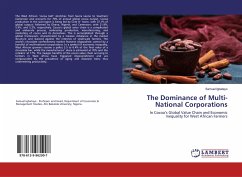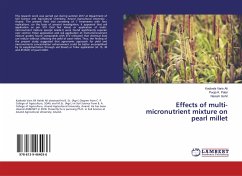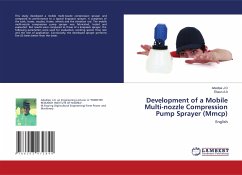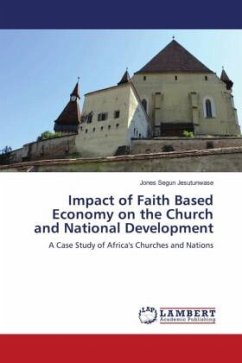
The Dominance of Multi-National Corporations
In Cocoa's Global Value Chain and Economic Inequality for West African Farmers
Versandkostenfrei!
Versandfertig in 6-10 Tagen
27,99 €
inkl. MwSt.

PAYBACK Punkte
14 °P sammeln!
The West African 'cocoa belt' stretches from Sierra Leone to Southern Cameroon and accounts for 70% of annual global cocoa output. Cocoa production in the sub-region is being led by Cote D' Ivoire, with 37.1% of global output; followed by Ghana, Nigeria, and Cameroon; with 21.9%, 5.9%, and 5.2%, respectively. Cocoa's global value chain is a complicated and elaborate process, embracing production, manufacturing, and marketing of cocoa and its derivatives. This is accomplished through a global framework, characterized by a massive imbalance in the market structure and skewed against the interest...
The West African 'cocoa belt' stretches from Sierra Leone to Southern Cameroon and accounts for 70% of annual global cocoa output. Cocoa production in the sub-region is being led by Cote D' Ivoire, with 37.1% of global output; followed by Ghana, Nigeria, and Cameroon; with 21.9%, 5.9%, and 5.2%, respectively. Cocoa's global value chain is a complicated and elaborate process, embracing production, manufacturing, and marketing of cocoa and its derivatives. This is accomplished through a global framework, characterized by a massive imbalance in the market structure and skewed against the interests of small-scale farmers. The world's chocolate confectionery market features oligopolistic control by a handful of multi-national corporations. In a symbol of economic inequality, West African growers receive a paltry 3.5 to 6.4% of the final value of a chocolate bar, while the manufacturers' share is estimated at 70% and the retailers' at 17%. The meager benefits of the cocoa value chain accruing to farmers in West Africa have triggered impoverishment and are compounded by the prevalence of aging and diseased trees; thus undermining productivity.












